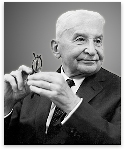A question for those who know the great Ludwig von Mises’s work better than I. Are the following two statements, both from Liberalism, consistent with each other?
 “I am not an ‘enemy of the state’ any more than I can be called an enemy of sulphuric acid because I am of the opinion that, useful though it may be for many purposes, it is not suitable either for drinking or for washing one’s hands” (p. 38).
“I am not an ‘enemy of the state’ any more than I can be called an enemy of sulphuric acid because I am of the opinion that, useful though it may be for many purposes, it is not suitable either for drinking or for washing one’s hands” (p. 38).
“All state activity is human action, an evil inflicted by men on men” (p. 57).
Source: Liberalism: A Socio-Economic Exposition, translated by Ralph Raico and edited by Arthur Goddard. Kansas City: Sheed, Andrews, and McMeel, 1962, 1978.
Just finished reading Raico’s really excellent book “Classical LIberalism and the Austrian School.” One of the essays is on Mises’ book Liberalism. Raico states:
‘A great part of Mises’s problem here, as occasionally elsewhere,
lies in his antiseptic conception of the state. For him, the state is simply
“the apparatus of compulsion and coercion.” He contemptuously rejects
(57) Nietzsche’s dictum that “the state is the coldest of all cold monsters”:
“The state is neither cold nor warm. . . . All state activity is human
activity,” and its goal is “the preservation of society.”’
So, if Raico is right, the two statements you quote would appear to be inconsistent, with the first one being the closer to Mises’ overall view.
Mises would not try to defend the consistency of every statement he made in his vast body of writing. Adam Smith has numerous inconsistencies but that does not diminish the power of the majority of his thinking. In this particular case, though, I imagine that Mises would not admit to the statements being inconstant because he would say that his use of the word “evil” does not prohibit LIMITED government being a “necessary evil”. Mises is not an anarchist. He supports government as a mechanism for securing such things as property rights. Furthermore, I’d be interested in seeing (and I don’t know the answer) whether the German original versions of both sentences sound as inconsistent as the English translation may sound. Besides, Rothbard would have had nothing to do, had Mises been perfect.
Mises is a thinker from the Lockean school. As you know, in the natural state, people conflict with each other, and a civilized society is a society that has eliminated these conflicts. Therefore, it is natural that he sees the state as indispensable as a conflict resolution mechanism. He was also a humanist and always condemned the oppression and violence of the state. Therefore, the only situation in which state violence is justified is when it is used against the aggressor. Since these views did not require the necessity of a state, the Misesian school created an anarchist system of thought over time. For example, the use of force against an attacker created the NAP principle and the idea of self-defense (anarcho-capitalism).
“Responsibility for the failure to discover a perfect system of government does not rest with the alleged backwardness of what is called political science. If men were perfect, there would not be any need for government. With imperfect men no system of government could function satisfactorily.”